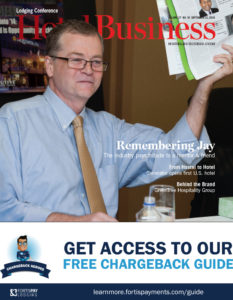CORAL GABLES, FL—For business travelers, a hotel is typically just a utility—a place to sleep after a long workday. Like most travelers today, business travelers value experience. But unlike leisure guests, they rarely have the opportunity to fully explore the places they travel to, raising the question: How can these travelers truly experience a city and its local culture with limited access to what’s beyond the hotel walls?
“Experience is everything; it’s why people go to a specific grocery store and why they take a specific airline,” said Ian McClendon, general manager of Hotel Colonnade, a Tribute Portfolio Hotel, in Coral Gables, FL, a property that’s creating programs and tailoring amenities to give business guests a true taste of the city. “There will always be strictly financially focused consumers, but, more and more, we are finding that consumers will pay for experiences and create lasting memories and bonds to brands that can execute this.”
Hotel Colonnade is just one of these properties. The hotel recognizes the increase in business travel, adding programs to integrate nearby flavors and cultures into an otherwise locally uninvolved trip.
“Travelers love to take away added benefits from their business trips. It’s rewarding to receive more than just a place to rest your head for the night,” McClendon said.
These benefits can range from sourcing local eats to recommending nearby bars and attractions to guests.
“Takeaways are evolving with consumers—at one point it could have been a key chain and a snow globe, but now it could be an amazing dinner or a scenic evening stroll—something cultural that the guest can tell stories of,” McClendon said.
These tokens may be intangible, but for a business traveler who visits myriad places, experiences can hold more of a lasting, distinct mark.
“Regional cuisines really speak to the culture and you can get a feel for the city. I always make a point to leave the hotel and really try to eat at one place that I can brag about when I get back home,” McClendon said.
 Hotel Colonnade, specifically, is not only offering these regional eats, but also wellness programs that pay tribute to the local landscape and flavors. The hotel offers bike programs, running maps and fitness classes, along with cooking and cocktail classes, all in an effort to extend city charm to hotel programming, giving guests a convenient way to discover Coral Gables.
Hotel Colonnade, specifically, is not only offering these regional eats, but also wellness programs that pay tribute to the local landscape and flavors. The hotel offers bike programs, running maps and fitness classes, along with cooking and cocktail classes, all in an effort to extend city charm to hotel programming, giving guests a convenient way to discover Coral Gables.
“It’s really important that hospitality professionals are providing sensory experiences for our guests that tie back to the ethos of your town and business,” McClendon said.
For Hotel Colonnade and its location, travelers are coming to Miami to experience Cuban, Latin American and Caribbean culture. For example, McClendon said, new artwork in the Coral Gables area gets the attention of Hotel Colonnade’s guests. “It’s trending on Instagram and our guests love that they are a part of that,” he said.
While local culture has ways of naturally incorporating itself, McClendon said that the hotel’s challenge is fitting that experience into everyone’s specific needs and adventure levels.
“Programming is key. Making sure guests have a great cocktail, a great meal and some entertainment is essential. You never want your guests to leave if they don’t have to,” McClendon said.
Using the surrounding neighborhood to a guest’s advantage is also key, McClendon said, making sure hotel programming is in tune with all events, venues, etc., in the area, which helps add to the guest experience.
McClendon warned, however, that without the right execution, hotel service can suffer. The functionality of these programs is essential in not only giving guests an all-inclusive snapshot of local culture, but also in determining the success of such programs.
“I think it’s always hard to experience a city, no matter how experiential the property is. For a proper, functional hotel, you need to make sure that everything is user-friendly—and that includes food and service,” McClendon said.
McClendon recommends planning out guests’ stays from start to finish so that they can focus on what brought them to that specific location, whether it’s for business or relaxation, or possibly both.
“The business traveler really is able to experience the culture and flair of where they are once they are in the room, walking the property and hopefully able to relax after their long day,” McClendon said. “It’s really important to make sure that it’s easy to jump in and out of experiences for these guests as they might just want a few minutes of excitement and then to head back to rest. Focusing our property team on showing guests how to live like a local is key and doing so in an easily accessible way is the best.”
Making this type of trip accessible and comprehensive is a task bestowed on the hotel team and one that matters as tourists rely on employees for a true local experience, especially when leaving the hotel may not be possible with their schedules.
“An all-encompassing experience is taking 100% control and guiding the guest through your city and hotel. If you do it right, guests won’t have to think about what’s next and instead just get excited for the next chapter of their vacation,” McClendon said. HB


